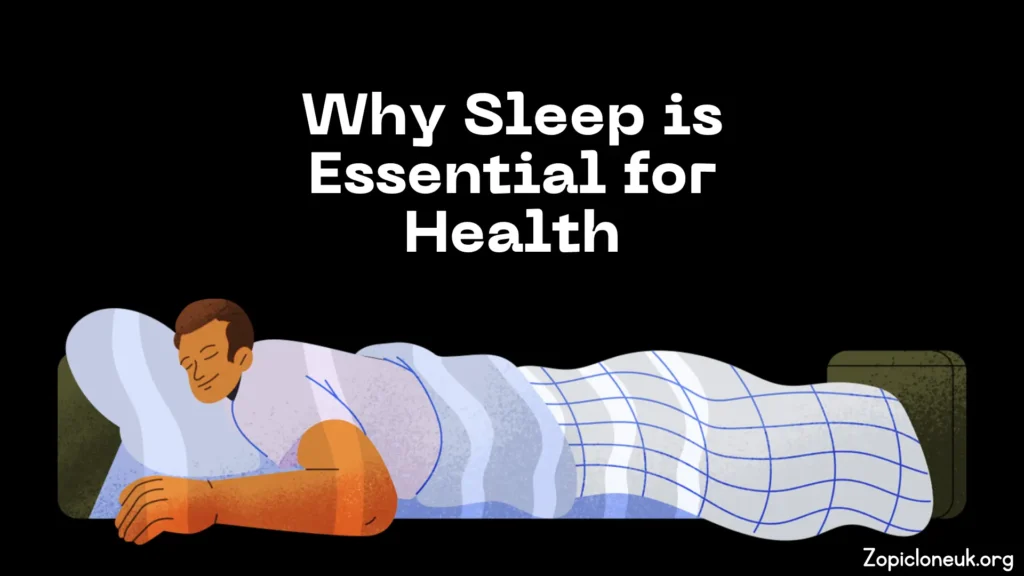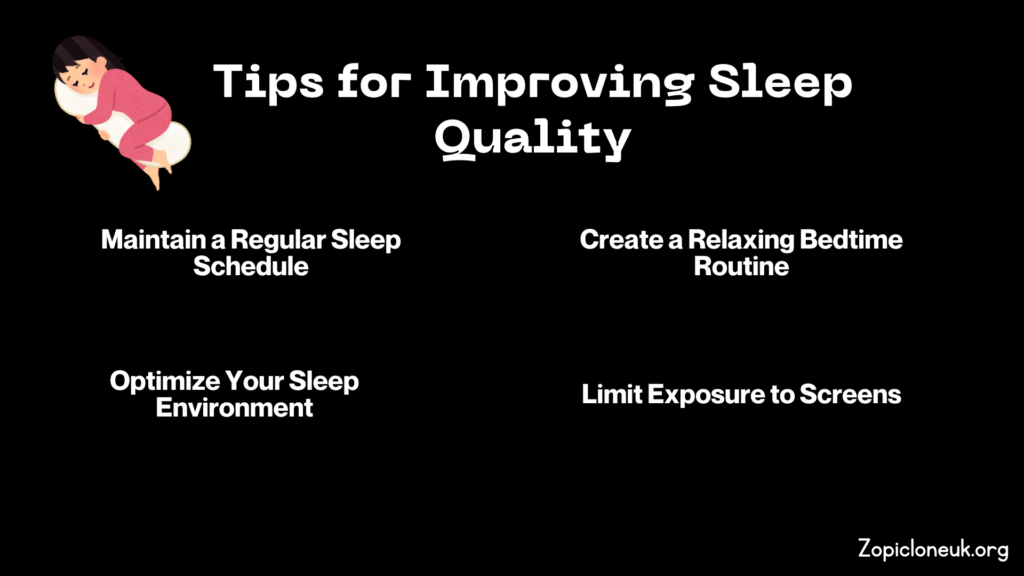
Sleep is Essential for Health:- Sleep is one of the most vital aspects of human health, yet it is often overlooked in the fast-paced world we live in. Adequate sleep is not just about feeling rested and refreshed; it plays a critical role in almost every aspect of physical and mental well-being. From improving cognitive function to boosting the immune system, sleep is fundamental to maintaining overall health. This comprehensive guide will explore why sleep is essential, the consequences of sleep deprivation, and how sleep impacts various aspects of health.
Contents
- 0.1 The Importance of Sleep for Physical Health
- 0.2 The Role of Sleep in Mental Health
- 0.3 The Impact of Sleep on Longevity
- 0.4 Tips for Improving Sleep Quality
- 0.5 Extra Tips for Better Sleep
- 0.6 FAQ Section
- 0.7 1. Why is sleep so important for overall health?
- 0.8 2. What are the consequences of sleep deprivation?
- 0.9 3. How much sleep do I need?
- 0.10 4. Can poor sleep affect mental health?
- 0.11 5. What can I do to improve my sleep?
- 0.12 Conclusion
- 1 Author Details
The Importance of Sleep for Physical Health
Sleep is the body’s natural way of rejuvenating itself. During sleep, the body goes through various stages that are crucial for healing, growth, and overall physical maintenance.
- Cellular Repair: Sleep is when the body repairs tissues, regenerates cells, and builds muscle. It is particularly vital for athletes and individuals who engage in regular physical activity. Sleep promotes the release of growth hormones that are essential for muscle development and repair.
- Immune Function: A healthy sleep pattern is closely linked to a robust immune system. During sleep, the immune system releases cytokines, proteins that help fight off infections, inflammation, and stress. Without sufficient sleep, the production of these cytokines is reduced, making the body more vulnerable to illness.
- Heart Health: Adequate sleep is essential for maintaining heart health. Sleep regulates blood pressure and reduces the strain on the heart. Chronic sleep deprivation has been linked to an increased risk of heart disease, hypertension, and stroke.
The Role of Sleep in Mental Health
Sleep is not just crucial for physical health but also plays a significant role in mental well-being.
- Cognitive Function: Sleep is critical for cognitive processes such as memory, problem-solving, and decision-making. During sleep, the brain consolidates memories and processes information gathered during the day. Lack of sleep can lead to impaired cognitive function, affecting concentration, creativity, and productivity.
- Emotional Regulation: Sleep is closely tied to emotional health. During sleep, the brain processes emotions and helps regulate mood. Chronic sleep deprivation can lead to mood disorders such as anxiety and depression.
- Stress Management: Sleep helps the body and mind manage stress. It reduces the production of stress hormones like cortisol, which can have a detrimental effect on overall health if elevated for prolonged periods.
The Impact of Sleep on Longevity
Several studies have shown a direct link between sleep and longevity. Individuals who consistently get enough sleep tend to live longer and healthier lives. Sleep deprivation has been associated with a higher risk of chronic diseases such as diabetes, obesity, and cardiovascular disease, all of which can shorten life expectancy.
- Weight Management: Sleep plays a crucial role in regulating metabolism and appetite. Lack of sleep can disrupt the balance of hormones that control hunger, leading to increased appetite and weight gain. This can contribute to obesity, a significant risk factor for many chronic diseases.
- Diabetes Risk: Poor sleep patterns have been linked to insulin resistance, a condition that can lead to type 2 diabetes. Getting enough sleep helps regulate blood sugar levels and reduces the risk of developing diabetes.
Tips for Improving Sleep Quality

Improving sleep quality is essential for reaping the full benefits of sleep. Here are some tips to help you get better sleep:
- Maintain a Regular Sleep Schedule: Go to bed and wake up at the same time every day, even on weekends. This helps regulate your body’s internal clock.
- Create a Relaxing Bedtime Routine: Engage in relaxing activities before bed, such as reading, taking a warm bath, or practicing meditation. This signals to your body that it’s time to wind down.
- Optimize Your Sleep Environment: Ensure your bedroom is conducive to sleep by keeping it cool, dark, and quiet. Investing in a comfortable mattress and pillows can also make a significant difference.
- Limit Exposure to Screens: The blue light emitted by phones, tablets, and computers can interfere with your body’s natural sleep cycle. Try to avoid screens at least an hour before bedtime.
- Watch What You Eat and Drink: Avoid heavy meals, caffeine, and alcohol close to bedtime. These can disrupt your sleep and reduce its quality.
Extra Tips for Better Sleep
- Stay Active: Regular physical activity can help you fall asleep faster and enjoy deeper sleep. However, avoid exercising too close to bedtime as it may have the opposite effect.
- Manage Stress: Chronic stress can interfere with your sleep. Techniques such as deep breathing, yoga, or journaling can help manage stress and improve sleep quality.
- Limit Naps: While napping can be beneficial, too much daytime sleep can interfere with nighttime sleep. If you need to nap, try to limit it to 20-30 minutes.
Read Also:- steps to better sleep
FAQ Section
1. Why is sleep so important for overall health?
Sleep is essential for various bodily functions, including tissue repair, immune system support, cognitive function, emotional regulation, and maintaining overall physical and mental health.
2. What are the consequences of sleep deprivation?
Chronic sleep deprivation can lead to a range of health issues, including increased risk of heart disease, diabetes, obesity, depression, and cognitive impairments.
3. How much sleep do I need?
Most adults need 7-9 hours of sleep per night. However, individual needs may vary based on factors such as age, lifestyle, and overall health.
4. Can poor sleep affect mental health?
Yes, poor sleep is closely linked to mental health issues such as anxiety, depression, and stress. It can also impair cognitive function, leading to difficulties in concentration, memory, and decision-making.
5. What can I do to improve my sleep?
Maintaining a regular sleep schedule, creating a relaxing bedtime routine, optimizing your sleep environment, and managing stress are all effective ways to improve sleep quality.
Conclusion
Sleep is a non-negotiable aspect of health that impacts every part of the body, from physical health to mental well-being. The importance of sleep cannot be overstated, as it is the foundation of a healthy lifestyle. However, in today’s fast-paced society, sleep often takes a backseat to other priorities, leading to widespread sleep deprivation and its associated health risks.
For those struggling with sleep, Zopiclone can be a helpful option under medical supervision. Zopiclone is a non-benzodiazepine hypnotic agent used for the short-term treatment of insomnia. It works by modulating the GABA receptors in the brain, promoting relaxation and inducing sleep. It is crucial, however, that Zopiclone is used responsibly and only as prescribed by a healthcare professional. Long-term use can lead to dependence, so it is generally recommended for short-term use only.
In conclusion, prioritizing sleep is one of the best things you can do for your health. Whether it’s through lifestyle changes or, if necessary, medical intervention with Zopiclone, ensuring you get enough quality sleep should be at the top of your wellness agenda.
Author Details




Medical content by qualified psychiatrists
Our editorial policy

Zopiclone precautions Read our potential abuse notice

Looking for a seller? Locate the best Zopiclone vendor






